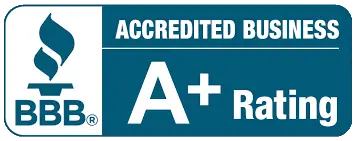Canadian Pardons vs. Record Suspensions: Understanding the Difference
In Canada, individuals with a criminal record may seek a second chance through either a Pardon or a Record Suspension. These legal mechanisms help individuals move forward by reducing the impact of their criminal record on their lives. Although the terms are often used interchangeably, there are key differences between a Canadian Pardon and a Record Suspension, both in terminology and application.
Do I apply for a Pardon or Record Suspension?
You must apply to have your record Pardoned or Suspended based upon the rules that existed at the time you committed your first offence. New rules do not apply to individuals previously convicted.
- Canada Pardon: You apply for a Pardon if your first offence was committed on or before March 12, 2012.
- Record Suspension: You apply for a Record Suspension if your first offence was committed on or after March 13, 2012.
Retroactivity
In Canada, the Criminal Records Act (CRA) governs the process of granting record suspensions, formerly known as pardons, to individuals with criminal convictions. In 2010 and 2012, the federal government enacted amendments to the CRA through the Limiting Pardons for Serious Crimes Act and the Safe Streets and Communities Act. These amendments introduced stricter eligibility criteria and extended waiting periods for obtaining record suspensions. Notably, these changes were applied retroactively, affecting individuals who had committed offenses prior to the enactment of the new laws.
The retroactive application of these amendments faced legal challenges on constitutional grounds. In 2017, the Supreme Court of British Columbia, in Chu v. Canada (Attorney General), declared that applying the new eligibility requirements retroactively violated sections 11(h) and 11(i) of the Canadian Charter of Rights and Freedoms, which protect against double jeopardy and guarantee the right to benefit from the lesser punishment. Similarly, Ontario Superior Court decisions in Rajab v. The Queen and Charron v. The Queen reached comparable conclusions.
Building on these precedents, the Federal Court of Canada, in P.H. v. Canada (Attorney General) (2020 FC 393), ruled that the retroactive application of the amended CRA provisions was unconstitutional. Justice Sylvie Roussel emphasized that such retroactive changes increased the severity of the original punishment, contravening the Charter’s protections. This decision ensured that the amendments would not be applied retroactively, thereby restoring the original eligibility criteria for individuals who committed offenses before the legislative changes. Law in Quebec
As a result of these court rulings, the government cannot apply the stricter record suspension rules to individuals convicted before the amendments were enacted. This ensures that those individuals are assessed based on the criteria in place at the time of their offenses, upholding the principles of fairness and justice enshrined in the Charter.
Key Differences Between Pardons and Record Suspensions
- Terminology: In Canada, the term “Pardon” has been replaced with “Record Suspension.”
- Legal Implications: A Record Suspension does not erase a criminal record but sets it aside, while a Pardon, in other jurisdictions, often suggests full forgiveness.
- Eligibility and Criteria: Canada’s Record Suspension process has stricter requirements compared to past Pardon policies, reflecting an emphasis on rehabilitation and accountability.
Moving Forward with a Pardon or Record Suspension
Applying for a Pardon or Record Suspension can be a life-changing step, enabling individuals to reintegrate into society and pursue new opportunities. While the process requires effort and patience, it demonstrates the applicant’s commitment to personal growth and societal contribution.
If you are considering applying for a Pardon or Record Suspension, working with our company in the process can streamline your application and improve your chances of success. Understanding the nuances between Pardons and Record Suspensions ensures you approach the process with clarity and confidence.
BLOG TOPIC generated with assistance from: https://openai.com/chatgpt



